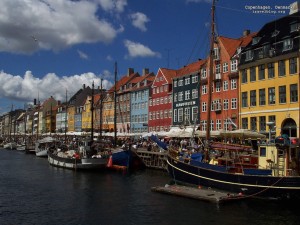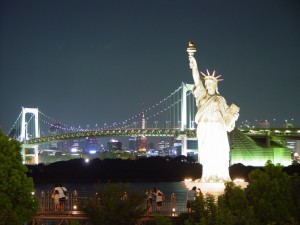Stati Uniti
La chiave
Vi propongo una riflessione a meta’ viaggio a New York.
La sensazione e’ che proprio New York, ossia l’osservatorio piu’ avanzato e prefigurante dell’occidente, ci faccia intendere oggi che siamo all’entrata di una curva da cui non si capisce come e dove usciremo.
La citta’ e’ indubitabilmente in movimento. La crisi e’ alle spalle, ma non si produce un nuovo sapere sul futuro.
Qualcosa sta incubando, lontano, e new York ne riporta l’eco, ma non ne e’ piu’ la fornace. Ovviamente le mie sono percezioni epidermiche di un turista. Ma ormai conosco abbastanza Manhattan per cogliere la tendenza.
L’Europa e’ ferma, vista da qui. I giornali e le Tv snobbano completamente il vecchio continente. Non si attendono ne sorprese ne conferme, solo sbadigli. Il centro dell’attenzione degli americani, ormai è sempre piu’ la Cina.
Nel bene, come fondamentale varabile dei nuovi equilibri geo politici, e nel male, come minaccia imprevedibile di una coesistenza non condivisa.
Da giorni i media battono la gran cassa su due temi: la minaccia alla sicurezza che viene dagli hacker, che in America vuol dire dalla Cina; e , contemporaneamente, l’auspicio – certezza che la nuova leadership di Xi Jiinping possa avviare il paese verso una forma inedita, ma chiara, di liberalizzazione dei diritti individuali.
Nel frattempo la pancia del paese sta digerendo la crisi, e rielaborando una nuova strategia: autonomia energetica, con fracking e fotovoltaico; riportare a casa i centri servizi; rilanciare al primato nel sapere. Sono i tre binari su cui l’America, tutta l’America, destra e sinistra, repubblicani e democratici, stanno ritrovando una medesima vision.
Rimane in sospeso il conflitto sul modello di welfare. Ma anche li’ si cercano nuove strade: il debito pubblico e’ considerato un’emergenza temporanea. Su tutti questi temi: geo politica, energia, welfare, diritti, l’America si trova sola in occidente.
Per la prima volta la vecchia zia europea non ha niente da dire. Io credo che questo sia il buco nero in cui rischiamo di cadere, inseguendo le chiacchere e le minacce di Berlusconi.
Parliamo di IMU e Bunga Bunga e ignoriamo che da anni non produciamo piu’ sapere ne teoria politica. Il mondo cambia, si complica, si torce in un nuovo processo sociale che noi ci ostiniamo a chiamare crisi e che invece e’ il nuovo modo di vivere di un pianeta dove nei prossimi 8 anni almeno 3 miliardi di persone si comporteranno da middle class.
Da qui dobbiamo partire: consumare meno per consumare meglio in molti. Chi saranno quei molti? chi decidera’ le gerarchie? cosa faranno gli esclusi? Gli americani vogliono mantenere le chiavi del nuovi equilibrio.
Sanno che i cinesi invece pensano di poter decidere da soli. Gli europei non sanno nemmeno dov’e’ la serratura.
E gli italiani pensano che la chiave sia solo un film di Tinto Brass
Interview to Prof Leonardo Maugeri, italian talent at Harvard
 by Massimo Preziuso on R-Innovamenti
by Massimo Preziuso on R-Innovamenti
Good morning, Professor. First of all, thanks for this opportunity. You are a clear example of an “exported” italian talent. After a brilliant career in the giant ENI, in 2011, yet in your forties, you decided to change and go back to the academy. Today you teach at the prestigious Harvard University, you are also an Advisor of the U.S. government on energy issues, and author of several books, including a best-selling book I read these days (“With all the energy possible”), and much more.
1) Why this so sudden and radical change?
I prefer that time sediments before answering this question.
2) Italy Vs United States: who wins?
There is no competition. For years, I agree with the judgment of Bill Emmott on Italy, and now unfortunately our country has reached a level of no return. Dominated by a pathological corruption and a ruling class completely inadequate, but self-sustaining with the mechanism of co-optation, no credible growth can be prospected. The country dropped out of research and high-level training, the first engines of development of each nation, and with no more than a handful of large industrial groups, it fails to produce technology or innovation, and on a small scale it is incapable of critical mass.
In the United States, with all the problems that do exist, there is a surprising vitality. Research, innovation, continuous transformation, are still factors supporting the country. Here it is still true that a total stranger, without family or possibility behind, can use all the great strength of his ideas or his talent. In addition, the country still manages to attract – especially thanks to its universities and its research centers – the best talent in the world.
3) How do you feel as an Italian talent in the United States, in these so turbulent years, while our country really needs skilled people like you to survive and “live”?
Mine it is certainly not a unique case. Simply put, those who have talent must find other ways away from Italy, because the talent is not within the selection criteria of our country. Acquaintances, memberships, willingness to accept the rules of a sick system are the only factors that count.
4) How to create real bridges of opportunity between Italy and United States? Which is the possible role for “ambassadors” like you?
If the country does not change radically, it is impossible for anyone to build real bridges of opportunity.
One has to wonder: why an American company should have an interest in investing in Italy, compared to all the other opportunities available in the world? What is our added value? Americans love Italy as a holiday place, not as a place of investment.
5) Competition Vs Equality: how to solve this “trade-off” of world views?
In my view, the coexistence of a competitive society and a society of equality is the main factor that made the West stronger than the rest of the world in the 20th century. A society has a need for equality of departure, because only in this way can bring out the best talent. The wealth generated by a society that feeds of competition, on the other hand, generates wealth and growth that – with fair and wise policies of redistribution – can support the most needs of the part of population which can be left behind and offer means for equality of departure. In poor societies this possibility does not exist.
6) Workers and Producers: what a way to make them work together to renew and rebuild this beautiful country?
There is a common interest: to focus the attention of the legislator in facilitating investment, reducing the bureaucracy that now prevents companies to invest and operate, cutting off the corruption that makes the game artificial, lowering over time taxes on companies. At the same time, the legislator should abandon the sterile question of scaling of workers’ rights. Try to ask why a foreign company does not invest in Italy, where it will close after a few years laying off all the workers ..
7) Energy policies: what a sustainable future? Do you believe to the opportunities, proposed by Monti government, that should come with the establishment of a gas hub in the Mediterranean, centred in Basilicata?
I believe that, for some decades to come, fossil fuels will constitute a large part of the energy needs of humanity, because their energy density has yet to find substitutes. At the same time, I think that the first decades of the century shall constitute the “workshop” that will produce the technologies needed to break down the role of fossil fuels in the future. For this scientific research is essential and, given what is happening in countries like the United States, I expect great technological breakthroughs – especially in solar energy – in the coming years.
As for Italy gas hub, It continues to feed many doubts to me for a number of reasons. First of all, I saw that the Antitrust now highlights a risk that I pointed out for years. For a gas hub (and a spot market) there must be an overabundance of infrastructure, functional to allow a high variability of flows of gas under different market conditions: who pays for this infrastructure (pipelines, pumping stations, storage)? Of course, the consumer pays the bill. May be fine, but the consumer is aware of? I doubt it. Furthermore, in a market characterized by a gas bubble (an excess of supply over demand, which I had already forecast years ago) as the European one, the pipelines in excess could go to a minimum capacity, but the consumer should pay the same the cost of their construction. With such advantages? And for who?
8 ) As Innovatori Europei, along with other environmental organizations, we are studying the theme “Sustainable Taranto” and the opportunity for the next Italian government to facilitate a smooth transition in the industrial production of “electric cars.” What do you think about that?
Look, I conceived and initiated the implementation of one of the most ambitious industrial reconversion of Italy, that of the petrochemical plant of Porto Torres in Sardinia, orienting it to green chemistry. When I did it, I first analyzed the economic prospects of a certain type of green chemistry, to be sure not to create another industrial illusion doomed to fail with time. Only once some of the economics came true, my company at that time called Polymers Europe, today Versalis – the Eni company in the chemistry, started up the project.
That of electric cars is a good idea, but needs first of all a strict economic analysis. I believe in the future of the electric car, and I also think that this future will come from Asia, not the old world. In Italy, the fundamental problem is that there are not enough distribution networks, and build them would cost billions of euro. To foster the electric car market, it would take specific regulations, even at no cost, but very hard, for example, prohibit the movement of conventional cars with a certain age in the inner cities.
I should study more thoroughly the issue. Perhaps, at the stage where we are, it would be more feasible to offer a big producer – best if asian – special conditions to build plants for hybrid cars, which are starting to have a certain market and are really fantastic. Even many Americans are starting to change. For special conditions I mean radical fiscal conditions (for example, zero taxes in the first 5 years). It would always be less than the direct intervention of the state, and then the taxpayer.
9) Innovatori Europei wants to become a “bridge” for project opportunities and political relations between Italy, Europe and the World. Among others, we are twinned with an innovative political reality operating in North America. Is the idea of putting together the Italian communities in the world around an intellectual and political project interesting for your opinion?
Yes, especially to the extent that he could reconnect many Italians of great value that have left Italy because there were no spaces and have then also experienced a great success. They are a heritage for the future Italy. But this is a project that takes time and a patient and focussed building process. There were already too many initiatives improvised and ephemeral in the recent past.
Thank you.
Thanks.
Aspettando il Global Kyoto a Copenhagen

di Massimo Preziuso
Le prime forti aperture della Cina ( “Taglio gas serra, la Cina apre: -40% entro dieci anni “ ), dopo quelle degli Stati Uniti di Obama, ad una politica globale di contrasto al Cambiamento Climatico, danno ragione a chi sosteneva che il Tema dovesse essere affrontato e regolato da una “regia” mondiale, ovvero che non potesse essere semplicemente regolata dalle forze di mercato.
Ne sono personalmente molto felice. Spiego perché.
Nel 2007, dopo i primi studi sul tema del Cambiamento Climatico, scrissi un piccolo articolo presso Peking University dal Titolo “Globalization and Climate Change: need of a Global Governance System”, contenente le premesse del mio lavoro di Tesi di Ph.D., che aveva avuto forti stimoli dal confronto con la realtà cinese.
A Settembre, tornato dalla Cina, fui invitato ad un incontro in LUISS, e comunicai la mia visione delle cose al Ministro degli Esteri inglese David Miliband: nemmeno lui, un politico – innovatore, prese sul serio quella mia osservazione, non considerando forse, a quel tempo, il Cambiamento Climatico quale problema di Governance.
Da quel Paper iniziai a fare ricerca di Ph.D. sulla necessità di un “Global Kyoto” che rimettesse in piedi un sistema energetico, culturale, geopolitico, ambientale ed economico, ormai in totale declino, grazie proprio alla “minaccia-opportunità” rappresentata dal Cambiamento Climatico.
Vivendo in quel periodo (2007-2008) a Londra ebbi la fortuna di vivere di persona la fase di prima euforia per la Green Economy, cominciata con l’assegnazione, ad Ottobre, del Premio Nobel per la Pace ad Al Gore ed al Comitato Intergovernativo per i Cambiamenti Climatici.
Ricordo le prime iniziative imprenditoriali e finanziarie promosse nella City (la nascita dei primi Fondi di Investimento Green, i primi Green Clubs, etc.), che nascevano in contemporanea all’ improvvisa e forte crisi delle Borse.
Nel giro di pochi mesi, nascevano a Londra le prime importanti iniziative istituzionali, come il Centro di Ricerca istituito in LSE da Sir Nicholas Stern, che aveva pubblicato lo “Stern Review on Climate Change” (su commissione del Governo Inglese), e le importanti iniziative di importanti banche d’affari, fino a poco prima lontane dalle tematiche ambientali.
Da Londra il dibattito “ambientale” si è poi rapidamente diffuso in tutto il mondo (dagli Stati Uniti all’Europa tutta, per poi passare al Sud America, ed infine alla Cina).
Nel Luglio-Agosto 2008, al Summit del G8 di Hokkaido, in Giappone (a cui ero stato invitato ad andare con il “G8 Research Group on Climate Change Oxford – LSE”) il Cambiamento Climatico è finalmente stato riconosciuto quale “global issue”.
Da quel momento si sta attendendo Novembre 2009, quando al vertice delle Nazioni Unite di Copenaghen si dovrebbe sancire la nascita del Global Kyoto, ovvero di una politica globale di contrasto al cambiamento climatico. E la Cina, insieme agli Stati Uniti, sarà il principale “protagonista” di quella scelta.
Intanto, ancora oggi alcune importanti personalità pubbliche (italiane) criticano la scelta della Green Economy come se fosse qualcosa su cui si può scegliere se e quando aderirvi. Ancora non si vuole capire che su temi così complessi non vi è da scegliere, ma solo da ascoltare e rispondere a quelle che sono le evoluzioni naturali del sistema economico, culturale e politico del Pianeta.
Oggi è evidente che quella traiettoria naturale porta il nome di sostenibilità (ambientale), che vuol dire rispetto dell’ambiente, ma anche molto di più.
Speriamo che non si aspetti ancora troppo (in Italia), per capirlo e rispondere alla realtà.
Massimo Preziuso
